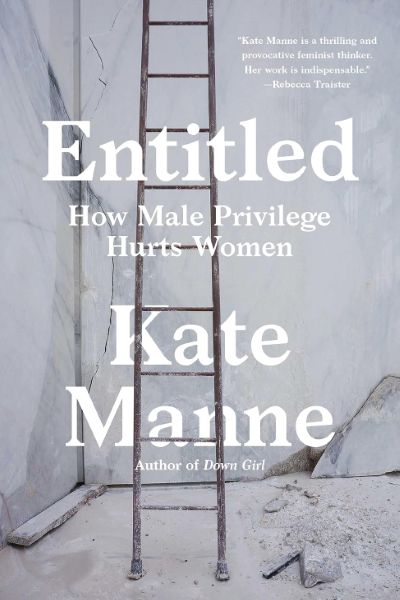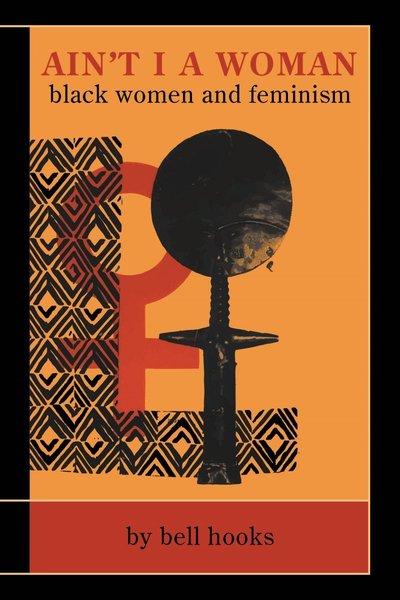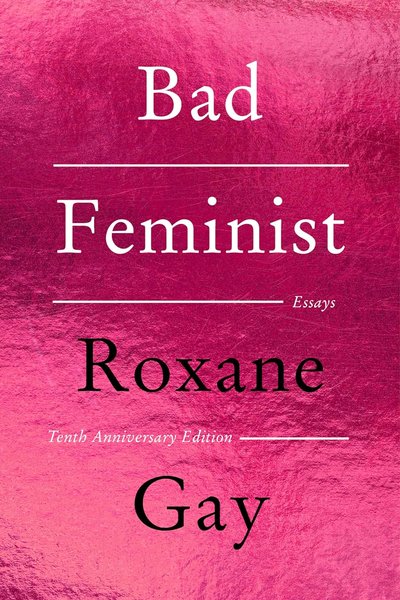Entitled: How Male Privilege Hurts Women
Following her groundbreaking 'Down Girl,' Manne examines how male entitlement operates across various domains—from intimate relationships to healthcare to politics—revealing how men's unwarranted sense of privilege systematically harms women and undermines gender equality.

📝 Book Review
“Entitled: How Male Privilege Hurts Women” represents Kate Manne’s powerful follow-up to her groundbreaking work “Down Girl,” extending her analysis of misogyny to examine the specific mechanisms through which male entitlement operates in contemporary society. Published by Crown in 2020, this incisive examination reveals how men’s unwarranted sense of privilege and deservingness systematically undermines women’s access to resources, opportunities, and basic human goods. Named one of the best books of 2020 by The Atlantic and one of the best feminist books by Esquire, “Entitled” provides essential insights into the pervasive yet often invisible operations of male privilege.
Kate Manne continues to bring her exceptional philosophical rigor to feminist analysis, drawing on her expertise as Associate Professor of Philosophy at Cornell University. Her ability to combine analytical precision with real-world examples makes complex theoretical concepts accessible while maintaining intellectual depth. Following her Harvard Society Fellowship and graduate work at MIT, Manne has established herself as one of the most important voices in contemporary feminist philosophy, capable of bridging academic discourse and public understanding.
The book’s approach demonstrates Manne’s distinctive ability to weave together philosophical analysis, empirical research, and contemporary examples to illuminate patterns that might otherwise remain obscured. Her methodology combines careful conceptual work with attention to lived experiences, creating a framework that both explains existing inequalities and provides tools for challenging them.
The Concept of Male Entitlement
Manne begins by carefully defining male entitlement as more than simple privilege or advantage. She conceptualizes it as a pervasive sense of deservingness—the often unconscious assumption that men are inherently entitled to certain goods, services, opportunities, and positions that should rightfully be equally available to all. This entitlement operates not through explicit claims but through subtle assumptions about who deserves what in society.
The analysis reveals how male entitlement functions as a complement to misogyny, with the two systems working together to maintain gender hierarchy. While misogyny punishes women who violate patriarchal norms, male entitlement ensures that men receive unwarranted advantages and benefits. This dual system creates a self-reinforcing cycle that maintains male dominance while appearing natural or inevitable.
Manne demonstrates how entitlement operates through what she calls “privilege-preserving epistemic pushback”—the tendency to resist or dismiss evidence that challenges male privilege. This resistance isn’t necessarily conscious or deliberate but reflects deep-seated assumptions about the natural order of things. Men who benefit from these systems may genuinely not perceive their advantages, experiencing their privileged position as normal or deserved.
The framework reveals how male entitlement creates what Manne terms “himpathy”—the excessive sympathy and concern directed toward male perpetrators of harm rather than their female victims. This phenomenon explains why society often focuses more on the potential damage to men’s reputations or careers than on the actual harm done to women.
Healthcare and Bodily Autonomy
One of the book’s most compelling sections examines how male entitlement operates in healthcare settings, systematically undermining women’s access to appropriate medical care and bodily autonomy. Manne reveals how medical systems consistently prioritize male bodies and experiences as the default, treating women’s health concerns as deviations or complications.
The analysis demonstrates how women’s pain is systematically minimized or dismissed in medical settings, with studies showing that women wait longer for pain medication, receive less aggressive treatment for heart attacks, and face longer diagnostic delays for conditions ranging from endometriosis to autoimmune disorders. This medical gaslighting reflects deeper assumptions about women’s credibility and the relative importance of their suffering.
Manne examines how male entitlement shapes reproductive healthcare, from restrictions on abortion access to inadequate maternal care. She reveals how decisions about women’s reproductive autonomy are often made by predominantly male legislators and judges who feel entitled to control women’s bodies while remaining largely ignorant of women’s actual healthcare needs and experiences.
The discussion extends to examine how medical research has historically excluded women from clinical trials, treating male bodies as the universal standard and women’s bodies as too complicated or variable to study. This exclusion has resulted in medications and treatments that are less effective or even dangerous for women, reflecting a systematic devaluation of women’s health and lives.
Sexual Entitlement and Consent
Manne provides a devastating analysis of how male sexual entitlement contributes to endemic sexual violence and the systematic dismissal of women’s sexual autonomy. She examines how cultural narratives around male sexuality create expectations that men deserve sexual access to women, while women’s desires and boundaries are treated as negotiable or irrelevant.
The analysis reveals how sexual entitlement operates through what Manne calls “testimonial injustice”—the systematic discrediting of women’s accounts of sexual violence. Women who report sexual assault face immediate skepticism and scrutiny, with their credibility questioned and their motives suspected, while male perpetrators receive the benefit of the doubt and sympathy for the potential consequences they might face.
Manne examines high-profile cases of sexual violence to demonstrate how male entitlement shapes public discourse around these events. She shows how media coverage often focuses on the perpetrator’s potential and achievements rather than the harm done to victims, reflecting deeper assumptions about whose suffering matters and whose future deserves protection.
The framework illuminates how concepts of consent have been distorted by male entitlement, with affirmative consent treated as an unreasonable burden rather than a basic requirement for ethical sexual interaction. This resistance to consent education and enforcement reflects a deeper sense that men are entitled to sexual access unless explicitly and forcefully denied.
Domestic Labor and Emotional Work
The book provides crucial analysis of how male entitlement operates in domestic settings, creating systematic inequalities in household labor and emotional work. Manne demonstrates how men feel entitled to women’s domestic services while simultaneously devaluing this work as unimportant or natural.
The analysis reveals how even in supposedly egalitarian relationships, women perform significantly more household labor and emotional work than their male partners. This inequality persists even when women work full-time outside the home, creating what sociologists call the “second shift”—the unpaid domestic labor that women perform after their paid employment.
Manne examines how male entitlement to domestic comfort and emotional support creates systematic exploitation of women’s time and energy. Men often expect their female partners to manage household logistics, remember family obligations, and provide emotional support without recognizing these as forms of labor deserving reciprocation or compensation.
The discussion extends to examine how this entitlement affects women’s career opportunities and advancement. The assumption that women will prioritize domestic responsibilities limits their professional opportunities, while men benefit from the support that enables them to focus on career advancement without domestic distractions.
Political Power and Representation
Manne’s analysis of political entitlement reveals how men’s overrepresentation in positions of power is maintained through systematic advantages and the exclusion of women from political leadership. She demonstrates how male politicians are viewed as natural leaders while women must constantly prove their competence and legitimacy.
The book examines how women in politics face unique forms of scrutiny and criticism that reflect underlying assumptions about male entitlement to political power. Women politicians are judged more harshly for their appearance, voice, and demeanor, while their policy positions are often dismissed or trivialized. This differential treatment creates additional barriers for women seeking political office.
Manne analyzes how male entitlement shapes policy priorities and political discourse, with men’s concerns treated as universal while women’s issues are marginalized as “special interests.” This framework explains why policies affecting primarily women—such as paid family leave, childcare support, or reproductive rights—struggle to gain political traction despite affecting half the population.
The discussion reveals how women who achieve political power face intense backlash designed to restore male dominance. This backlash includes not only political opposition but personal attacks, threats of violence, and systematic attempts to undermine women’s authority and credibility.
Economic Inequality and Professional Life
The book provides comprehensive analysis of how male entitlement creates and maintains economic inequality between men and women. Manne examines how assumptions about male deservingness shape hiring practices, promotion decisions, and compensation structures across industries.
The analysis reveals how male entitlement operates through what Manne calls “privilege-preserving narratives”—explanations for inequality that obscure its systematic nature. The gender pay gap is attributed to women’s choices rather than discrimination, while men’s overrepresentation in leadership is explained by merit rather than advantage.
Manne demonstrates how professional networks and mentorship opportunities systematically favor men, creating invisible advantages that compound over time. Men feel entitled to these networking benefits while women who seek similar advantages are often viewed as pushy or calculating.
The discussion examines how male entitlement affects workplace dynamics, with men’s contributions valued more highly than women’s identical work. Studies showing that identical resumes receive different evaluations based on gender reveal how deeply these biases operate, affecting women’s career trajectories from entry-level positions through senior leadership.
Knowledge and Expertise
One of the book’s most innovative sections examines how male entitlement operates in the domain of knowledge and expertise. Manne reveals how men’s opinions and knowledge claims receive unwarranted credibility while women’s expertise is systematically questioned or dismissed.
The analysis explores the phenomenon of “mansplaining”—men’s tendency to explain things to women without regard for women’s actual knowledge or expertise. This behavior reflects deeper assumptions about male intellectual superiority and entitlement to the position of teacher or expert regardless of actual qualifications.
Manne examines how male entitlement shapes academic and intellectual spaces, with men’s ideas given more weight and attention than women’s contributions. Women scholars face additional burdens of proof and must work harder to establish credibility, while men’s intellectual authority is assumed.
The discussion reveals how this epistemological entitlement affects public discourse and decision-making. Male voices dominate media representation and expert commentary, shaping public understanding of issues that affect everyone while excluding women’s perspectives and expertise.
Intersectional Analysis
Throughout the book, Manne provides careful attention to how male entitlement intersects with other forms of privilege and oppression. She demonstrates how race, class, sexuality, and other factors shape both the expression of male entitlement and its effects on different groups of women.
The analysis reveals how white male entitlement operates differently from male entitlement in marginalized communities, though both forms systematically disadvantage women. White men’s entitlement often operates through institutional power and cultural dominance, while men of color may express entitlement within their communities while facing racial oppression in broader society.
Manne examines how wealthy men’s entitlement creates particular harms for working-class and poor women, who may depend on powerful men for employment or resources. This economic vulnerability makes it harder for these women to challenge male entitlement or seek recourse for harm.
The framework demonstrates how male entitlement affects LGBTQ+ individuals, with traditional gender hierarchies creating particular vulnerabilities for trans women and gender non-conforming people while privileging masculine presentations and behaviors.
Resistance and Solutions
While primarily analytical, Manne concludes with thoughts on challenging male entitlement and creating more equitable social arrangements. She argues that recognizing and naming male entitlement is the first step toward challenging it, making visible what often operates through unconscious assumption.
The analysis suggests that addressing male entitlement requires both individual consciousness-raising and systematic institutional change. Men must recognize and relinquish unearned advantages while institutions must be restructured to ensure equal access to opportunities and resources.
Manne emphasizes the importance of centering women’s experiences and expertise in efforts to challenge male entitlement. This means not only including women in decision-making but prioritizing their perspectives on issues that disproportionately affect them.
The book concludes with a call for what Manne terms “moral deference”—the practice of giving special weight to the testimony and experiences of those who face systematic disadvantage. This approach offers a way forward that acknowledges existing inequalities while working toward more just arrangements.
Contemporary Relevance
“Entitled” provides essential tools for understanding contemporary gender politics and ongoing struggles for equality. The book’s framework helps explain persistent inequalities that might otherwise seem puzzling in an era of formal legal equality.
The analysis proves particularly relevant for understanding backlash against feminist progress, revealing how challenges to male entitlement generate intense resistance from those who experience equality as loss. This insight helps explain the intensity of opposition to seemingly modest feminist demands.
Manne’s work provides crucial vocabulary and concepts for articulating experiences that many women recognize but struggle to name. By providing clear analysis of male entitlement’s operations, the book empowers readers to identify and challenge these patterns in their own lives.
Impact and Reception
“Entitled” has had significant impact on both academic and public discussions of gender inequality. The book’s accessible style and compelling examples have made it influential beyond academic philosophy, shaping broader cultural conversations about privilege and gender.
The work has been particularly influential in discussions of sexual violence and consent, providing frameworks for understanding why progress in these areas faces such persistent resistance. Manne’s analysis of “himpathy” has become a widely used concept for understanding public responses to #MeToo revelations.
Critics have praised the book’s rigorous analysis while noting its sometimes depressing implications. The systematic nature of male entitlement that Manne reveals can feel overwhelming, though she maintains that recognition is necessary for effective challenge.
Through her careful philosophical analysis and compelling real-world examples, Kate Manne has provided an essential resource for understanding one of the most pervasive yet underexamined aspects of gender inequality. “Entitled” stands as both a devastating critique of male privilege and a call to action for those committed to genuine equality. Her work demonstrates that achieving gender justice requires not only stopping active harm to women but also dismantling the systems of entitlement that grant men unearned advantages at women’s expense.
Book Info
Related Topics
🛒 Get This Book
 Buy on Amazon
Buy on Amazon Related Books
Book Discussion
Share your thoughts and opinions on this book and exchange insights with other readers
Join the Discussion
Share your thoughts and opinions on this book and exchange insights with other readers
Loading comments...


